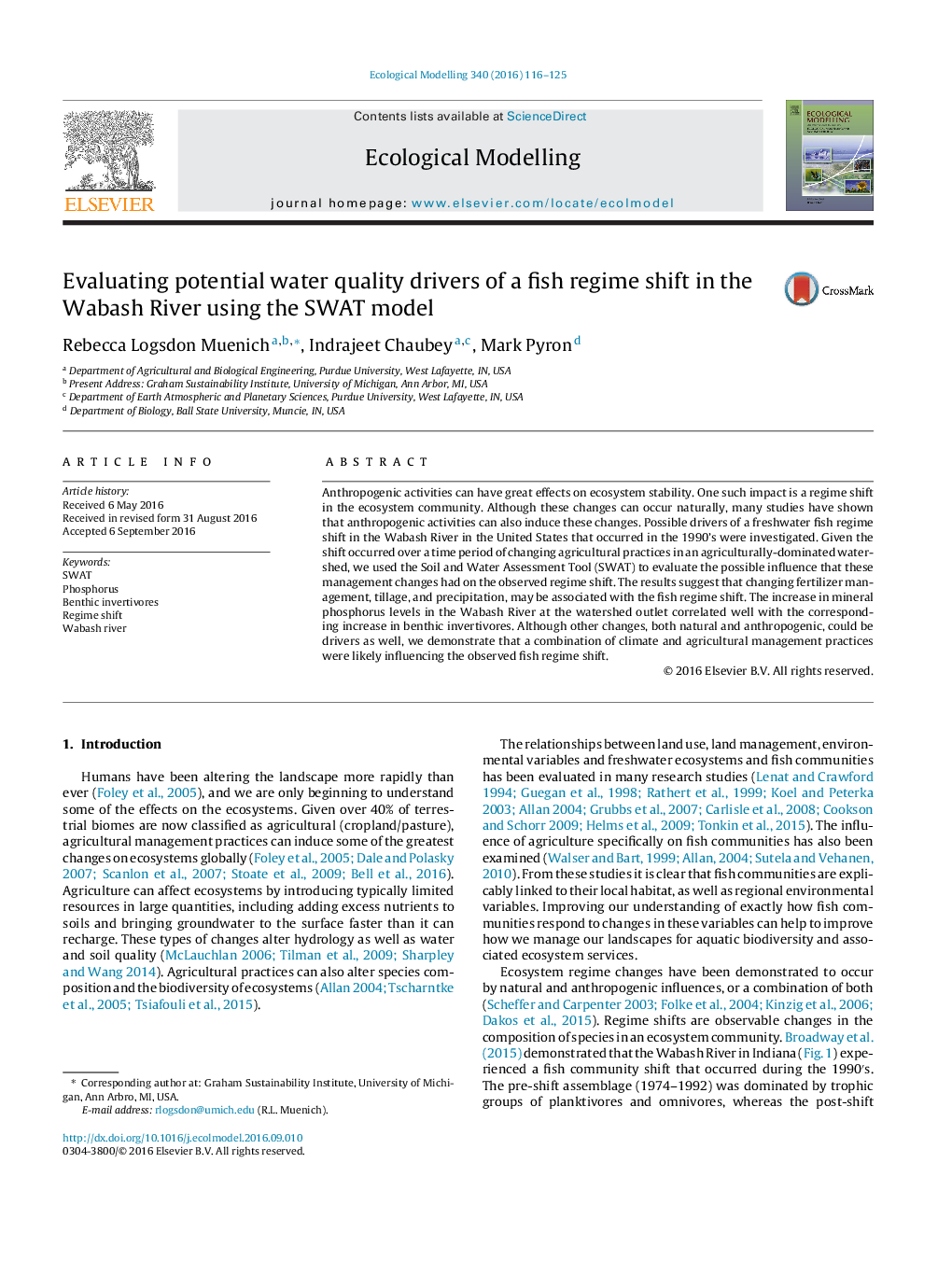| Article ID | Journal | Published Year | Pages | File Type |
|---|---|---|---|---|
| 6295982 | Ecological Modelling | 2016 | 10 Pages |
Abstract
Anthropogenic activities can have great effects on ecosystem stability. One such impact is a regime shift in the ecosystem community. Although these changes can occur naturally, many studies have shown that anthropogenic activities can also induce these changes. Possible drivers of a freshwater fish regime shift in the Wabash River in the United States that occurred in the 1990's were investigated. Given the shift occurred over a time period of changing agricultural practices in an agriculturally-dominated watershed, we used the Soil and Water Assessment Tool (SWAT) to evaluate the possible influence that these management changes had on the observed regime shift. The results suggest that changing fertilizer management, tillage, and precipitation, may be associated with the fish regime shift. The increase in mineral phosphorus levels in the Wabash River at the watershed outlet correlated well with the corresponding increase in benthic invertivores. Although other changes, both natural and anthropogenic, could be drivers as well, we demonstrate that a combination of climate and agricultural management practices were likely influencing the observed fish regime shift.
Keywords
Related Topics
Life Sciences
Agricultural and Biological Sciences
Ecology, Evolution, Behavior and Systematics
Authors
Rebecca Logsdon Muenich, Indrajeet Chaubey, Mark Pyron,
